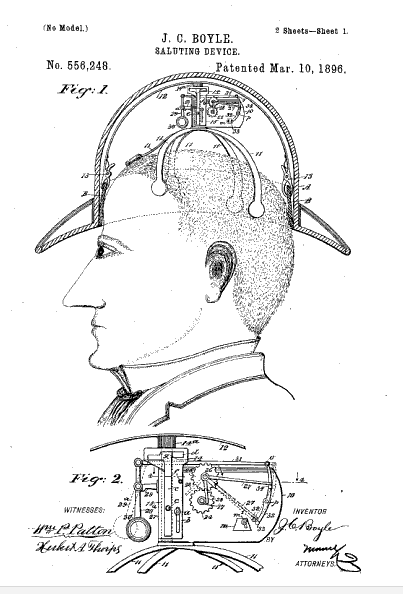What you really need, is a need…
 What drives innovation? A personal vision? Of course. A new technology? Sometimes (though solutions don’t always need new technology). Recognition of a need can and should also drive it. Without a need for the innovation to address, success in the market place will be limited. In his book ‘Patent Nonsense’, Clive Anderson suggests a common inventor’s mistake is “imagining a problem no one else had noticed and then solving it”.
What drives innovation? A personal vision? Of course. A new technology? Sometimes (though solutions don’t always need new technology). Recognition of a need can and should also drive it. Without a need for the innovation to address, success in the market place will be limited. In his book ‘Patent Nonsense’, Clive Anderson suggests a common inventor’s mistake is “imagining a problem no one else had noticed and then solving it”.
Failure to identify a need can lead to disastrous, even fatal results. Messrs Boyle and Neill invented a Saluting Device – a hat you could doff automatically. Andrew Jackson Jr. developed an Eye Protector for Chickens, helping chickens everywhere retain peck-free eyes. Albert Bacon Pratt’s invention of a helmet-mounted gun for trench-men in World War I broke the neck of the user. All three were patented. All three seemed to have something lacking; a genuine need.
“A problem clearly stated is a problem half solved” Dorothea Brande
Godtfred Christiansen was not an inventor but he was innovative. In 1954 while at a Danish toy fair he met a buyer “who complained that no multifaceted toy system existed” . The buyer knew his market and had identified the need. Picking up on this, Christiansen developed a list of criteria that would describe such a system. The only toy of his 200 plus products that satisfied the criteria was the building system that became a huge success. You may have heard of it; LEGO.
“If I had an hour to solve a problem I’d spend 55 minutes thinking about the problem and 5 minutes thinking about solutions.” Albert Einstein
At 100%Open, the reason we love problems is that we know that’s where we’ll find some unmet needs. Some of these will be quite explicit, others will be latent and not yet known (but we’ll spot them). All of them have the potential to drive your next innovation.
by David Townson
Well said David! …and I see there is a real skill in finding those needs and expressing them too.
Thanks Chris! I think the expression of the need – a really well crafted problem statement – is something that is often hurried passed as the glint of a promising new solution is seen. It really does boil down to the adage of having more time to write less!
This makes it such a joy to work with people who see the value good problem statements can yield.
As someone who I recall keeps chickens, I wonder if there are some needs you are aware of that Mr. Jackson would have better spent his time on?
Absolutely. I’ve often thought that innovation is the wrong way round. It’s thought that it starts with an innovation (push mode) but in fact successful inventions (one definition of innovation) start with a need (pull model).
Hi David, very insightful article. do you mind if I share it with the Innovation community of South Africa? http://www.saine.co.za ?
Thank you Linda. Please feel free to circulate amongst your community and we look forward to hearing from them.
[…] short article by David Townson – who will be teaching you later in the semester on what innovation is and […]